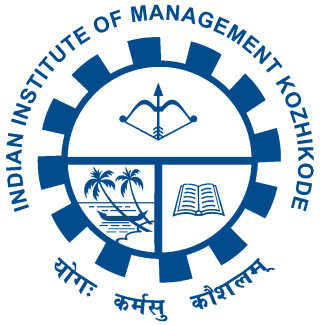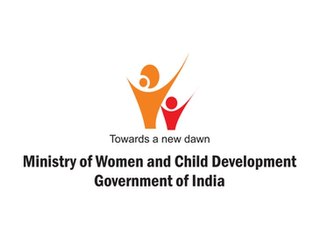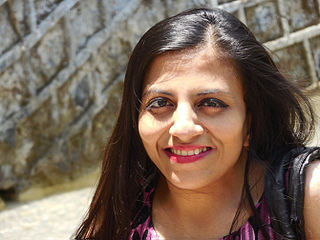
The Kerala model refers to the practices adopted by the Indian state of Kerala to further human development. It is characterised by results showing strong social indicators when compared to the rest of the country such as high literacy and life expectancy rates, highly improved access to healthcare, and low infant mortality and birth rates. Despite having a lower per capita income, the state is sometimes compared to developed countries. These achievements along with the factors responsible for such achievements have been considered characteristic results of the Kerala model. Academic literature discusses the primary factors underlying the success of the Kerala model as its decentralization efforts, the political mobilization of the poor, and the active involvement of civil society organizations in the planning and implementation of development policies.
Gender equality, also known as sexual equality or equality of the sexes, is the state of equal ease of access to resources and opportunities regardless of gender, including economic participation and decision-making; and the state of valuing different behaviors, aspirations, and needs equally, regardless of gender.

Indian Institute of Management Kozhikode is an autonomous public business school located in Calicut (Kozhikode), Kerala. The institute, set up in 1996 by the Government of India in collaboration with the State Government of Kerala, is one of the 20 Indian Institutes of Management (IIMs). It was the fifth IIM to be established.

The Fourth World Conference on Women: Action for Equality, Development and Peace was the name given for a conference convened by the United Nations during 4–15 September 1995 in Beijing, China.

National Commission on Status of Women (NCSW) is a Pakistani statutory body established by the President Pervez Musharraf, under the XXVI Ordinance dated 17 July 2000. It is an outcome of the national and international commitments of the Government of Pakistan like Beijing Declaration and Platform for Action, 1995; and 1998 National Plan of Action (NPA) for Women, 1998.

Women in Uganda have substantial economic and social responsibilities throughout Uganda's many traditional societies. Ugandan women come from a range of economic and educational backgrounds. Despite economic and social progress throughout the country, domestic violence and sexual assault remain prevalent issues in Uganda. Illiteracy is directly correlated to increased level of domestic violence. This is mainly because household members can not make proper decisions that directly affect their future plans. Government reports suggest rising levels of domestic violence toward women that are directly attributable to poverty.

The Ministry of Women and Child Development, a branch of the Government of India, is an apex body for formulation and administration of the rules and regulations and laws relating to women and child development in India. The current minister for the Ministry of Women and Child Development is Annpurna Devi having held the portfolio since 2024.
The Beijing Declaration was a resolution adopted by the UN at the end of the Fourth World Conference on Women on 15 September 1995. The resolution adopted to promulgate a set of principles concerning the equality of men and women.
United Nations Action Against Sexual Violence in Conflict a cross-UN initiative that unites the work of 24 United Nations entities tasked with the goal of ending sexual violence in conflict. The 24 UN entities are from sectors that include peacekeeping, political affairs, justice, human rights, humanitarian, health, gender equality and women's empowerment. The Special Representative of the Secretary-General Pramila Patten chairs the network, which represents an effort by the UN to improve its coordination and accountability, amplify advocacy, and support national efforts to prevent sexual violence and respond effectively to the needs of survivors. The UN Action Secretariat is based in the Office of the Special Representative of the Secretary-General on Sexual Violence in Conflict.
Butterflies is a registered voluntary organization that has been operating in Delhi since 1989. The organization focuses on assisting the vulnerable children, particularly those on the streets. Employing a rights-based and participatory methodology, Butterflies aims to provide education and life skills to these children.
Naila Kabeer is an Indian-born British Bangladeshi social economist, research fellow, writer and Professor at the London School of Economics. She was also president of the International Association for Feminist Economics (IAFFE) from 2018 to 2019. She is on the editorial committee of journals such as Feminist Economist, Development and Change, Gender and Development, Third World Quarterly and the Canadian Journal of Development Studies. She works primarily on poverty, gender and social policy issues. Her research interests include gender, poverty, social exclusion, labour markets and livelihoods, social protection, focused on South and South East Asia.
Nepal, a Himalayan country situated in South Asia, is one of the poorer countries because of undeveloped resources. It has suffered from political instability and has had undemocratic rule for much of its history. There is a lack of access to basic facilities, people have superstitious beliefs, and there are high levels of gender discrimination. Although the Constitution provides for the protection of women, including equal pay for equal work, the Government has not taken significant action to implement its provisions.

The term 'political participation' has a very wide meaning. It is not only related to 'Right to Vote', but simultaneously relates to participation in: decision-making process, political activism, political consciousness, etc. Women in India participate in voting, run for public offices and political parties at lower levels more than men. Political activism and voting are the strongest areas of women's political participation. To combat gender inequality in politics, the Indian Government has instituted reservations for seats in local governments.

Women's empowerment may be defined in several ways, including accepting women's viewpoints, making an effort to seek them and raising the status of women through education, awareness, literacy, and training. Women's empowerment equips and allows women to make life-determining decisions through the different societal problems. They may have the opportunity to re-define gender roles or other such roles, which allow them more freedom to pursue desired goals.

Ira Singhal is an Indian Administrative Service officer and computer science engineer. She was the highest-scoring individual in the UPSC's Civil Services Examination for the year 2014. She completed her BE from Netaji Subhas Institute of Technology, University of Delhi and MBA from FMS, University of Delhi. Singhal topped the exam in her fourth attempt, to become the first differently abled woman to top the civil services exam.

Lesbian, gay, bisexual and transgender (LGBT) people in Kerala face legal and social difficulties not experienced by non-LGBT persons. However, Kerala has been at the forefront of LGBT issues in India after Tamil Nadu. It became one of the first states in India to establish a welfare policy for the transgender community and in 2016, proposed implementing free gender affirmation surgery through government hospitals. Same-sex sexual activity has been legal since 2018, following the Supreme Court ruling in Navtej Singh Johar v. Union of India. In addition, numerous LGBT-related events have been held across Kerala, including in Kochi and Thiruvananthapuram. However, there is also increasing opposition to LGBT rights recently as evidenced by the anti-LGBT campaigns spearheaded by meninist groups and Muslim organisations like Indian Union Muslim League, Samastha and Jamaat-e-Islami.

Smita Bharti is an Indian social activist, playwright and director. She has written and directed over 20 plays with communities spanning social, class and age strata. Through research, training, workshops, performances, campaigns and publications, she works extensively and intensively with women and adolescents in difficult and challenging circumstances, in prisons with victims under trial, with survivors in situations of domestic violence, sexual abuse and incest, physically and mentally challenged individuals. She also works with the policy and decision makers who have the potential of making systemic change in the country.
International Women's Trade Centre (iWTC) is an initiative of the Kerala Gender Park's "Vision 2020", running under the State's Department of Social Justice, designed to help women entrepreneurs by providing a safe space away from home to set up or expand their businesses and market their products abroad.

Nilam Sawhney is currently serving as chief election commissioner of Andhra Pradesh. She served as the first woman Chief Secretary of the newly formed state of Andhra Pradesh, India, from November 2019 to January 2021. She is a 1984 batch Indian Administrative Service (IAS) officer of Andhra Pradesh cadre. She previously held the position of Secretary of Union Ministry of Social Justice and Empowerment from 2018 to 2019 and before this served as the Secretary of Central Vigilance Commission in the Government of India from 2015 to 2018.

Sustainable Development Goal 5 concerns gender equality and is fifth of the 17 Sustainable Development Goals established by United Nations in 2015. The 17 SDGs recognize that action in one area will affect outcomes in others, and that development must balance social, economic and environmental sustainability.













